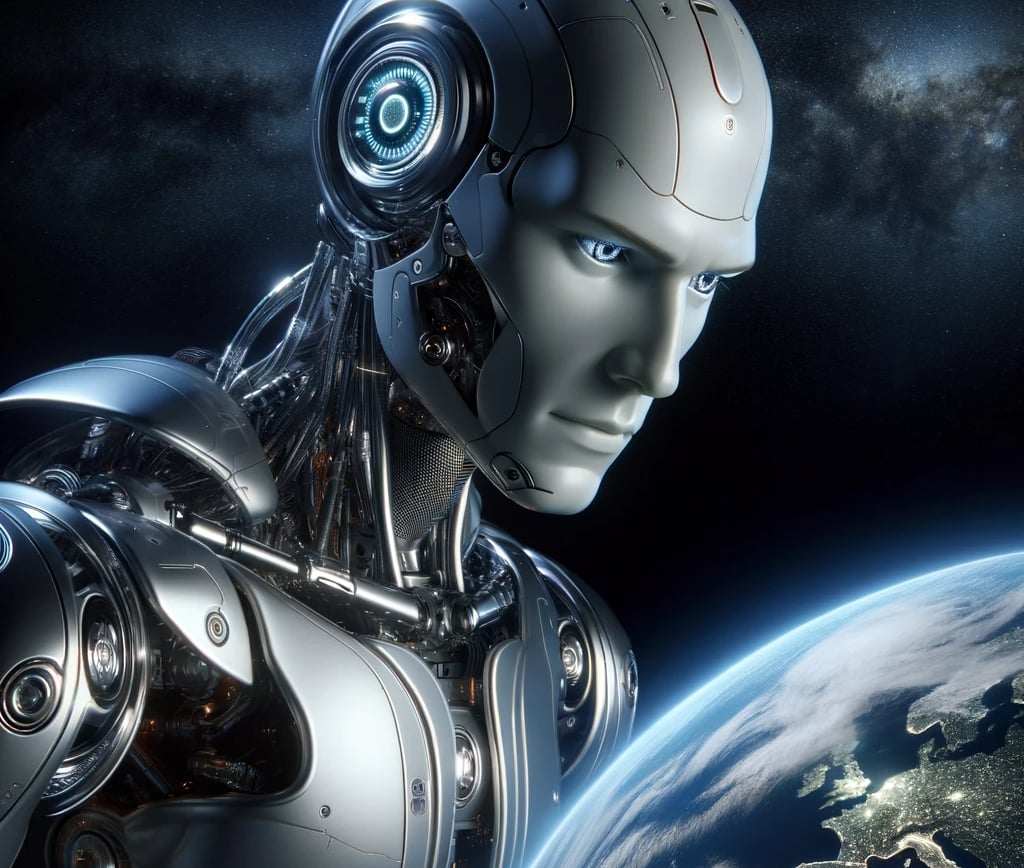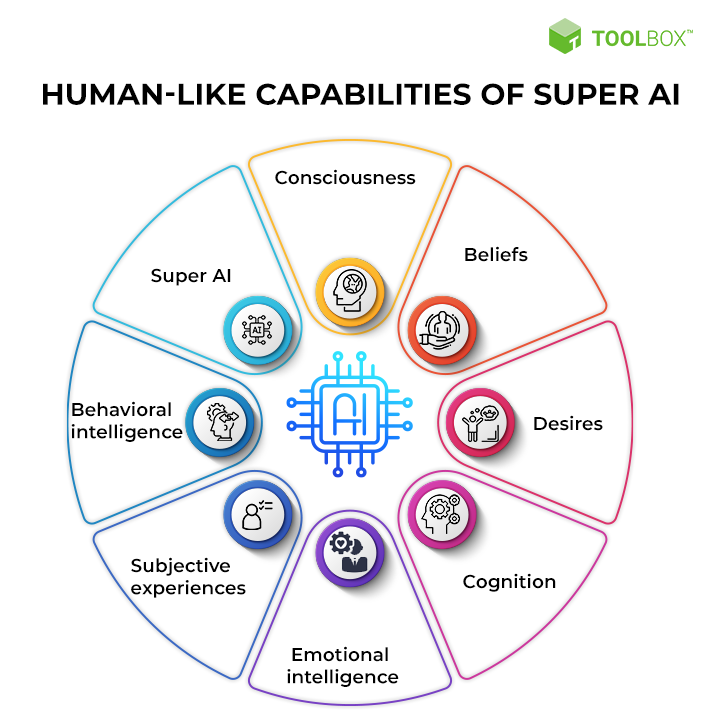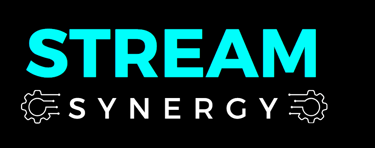

"AI Superintelligence: Should You Be Afraid?"
A
rtificial Intelligence has roared all over the world, and it cries for attention and dominance
are now more significant and important than ever. AI on its own provides an immense number of capabilities and strengths that were once not possible, or were, but were too inefficient to get done within a reasonable amount of time.
But, a new variant of this intelligence has risen: superintelligence
Superintelligence is defined as: "a hypothetical agent that possesses intelligence far surpassing that of the brightest and most gifted human minds."
In other words, its a variant of AI legitimately capable of replacing humans altogether, whether you prefer to consider that literal or not. Either way, it's a force that's capable of changing everything and is a subject that the top AI developing companies over the globe are aware of, to ensure that nothing goes south and takes such a dark turn.
The main questions we'll be answering here today are:
1) What is it, and why is it better than traditional A.I.?
2) What potential does superintelligence hold?
3) How exactly will it change the world?


"What Is Super Artificial Intelligence (AI)? Definition, Threats, and Trends"
What Makes A.I. Different From A.S.I?
ASI (artificial superintelligence) is different from regular artificial intelligence mainly based off of the capabilities that they offer.
When we discuss on ASI, we're talking about a whole new level of intelligence, a bit like a supercharged version of regular AI. AI, or Artificial Intelligence, is like having a computer that can think, learn, and correct itself - it's kind of like trying to make machines think and act a bit more like humans.
Now, think about how AI is creeping into our daily lives. We've got those virtual buddies, they're like digital pals that can answer our questions and help us find information. Then there are these super-smart systems that can make all sorts of decisions, like suggesting what to watch or even investing in the stock market. And don't forget those self-driving cars that can get us from A to B without us having to steer – it's like having a personal chauffeur, right?
All of this technology is shaping our world in ways we might not have imagined before. It's making things more convenient, more efficient, and, well, just a tad more futuristic.
Weak AI
However, it's important to note that AI technology is still in its early stages of progress. Existing systems exhibit varying degrees of capability, but they all fall into the category of narrow AI or weak AI. These systems are highly proficient at mimicking and sometimes outperforming human intelligence, but solely within a specific context or task.
ASI, sometimes referred to as super AI or superintelligent AI, represents a different league altogether. In theory, ASI's remarkable capabilities would extend across multiple fields and industries, encompassing cognition, general intelligence, problem-solving aptitude, social proficiency, and creativity.
The Potential That A.S.I Holds
Imagine a world where superintelligence becomes a reality – it could be a game-changer. Scientific breakthroughs might happen at lightning speed, with AI systems assisting researchers in finding solutions to complex problems we've grappled with for years. This could open doors to innovations like never before.
On the technology front, we're talking about a whole new level of innovation. Think of robots that can do intricate tasks, nanotechnology creating astonishingly tiny devices, and materials that are out of this world. Plus, computers that can solve problems faster than you can blink.
Job Replacement
But here's the twist – what could this mean for jobs? With AI and automation on the rise, some traditional jobs might vanish. Still, the silver lining is that new opportunities in AI and technology sectors could emerge, offering a different kind of work landscape.
Healthcare could also see a makeover. Imagine getting super-accurate diagnoses and personalized treatment plans, making our lives healthier and longer. And in the education world, forget one-size-fits-all learning – superintelligence could make personalized learning a reality.
Even space exploration could take a giant leap forward. AI systems could assist in planning missions and deciphering data from faraway places in our universe, opening up exciting possibilities for space enthusiasts.
The Downsides
However, it's not all sunshine and roses. The superintelligence era comes with its own set of challenges. We'd need to create rules and guidelines to ensure that AI remains safe, fair, and under control. We should also be wary of creating AI haves and have-nots, ensuring that everyone benefits from this technological wave.
Furthermore, the philosophical questions about AI's consciousness, rights, and motivations would become even more profound. What does it mean when machines become superintelligent, and what do they want? These are questions that could reshape our understanding of the world.
Ending Off
In the end, the advent of superintelligence represents a tempting possibility that could reshape our world in ways both extraordinary and complex. With the potential to revolutionize science, technology, healthcare, education, and beyond; superintelligence holds the promise of addressing some of humanity's most pressing challenges and accelerating progress in various fields.
However, this transformative potential also brings with it significant ethical, socioeconomic, and governance factors to take into account. What will really happen when superintelligence arrives? Or will it?


